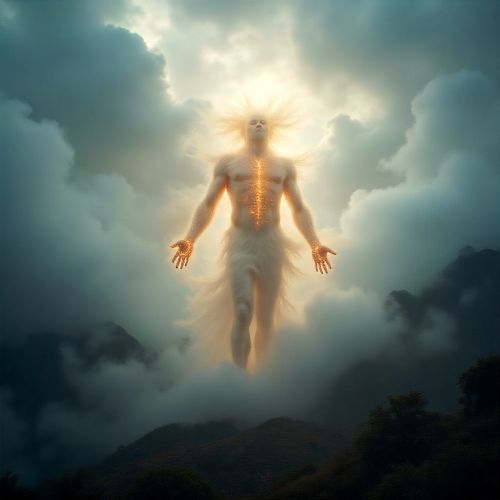Huli Mythology
Huli mythology forms the spiritual foundation of the Huli people, who live in the rugged highlands of Papua New Guinea. Surrounded by misty mountains, lush forests, and dramatic valleys, the Huli believe their world is guided by powerful ancestor spirits and nature beings who shape human life and protect the land. Every ritual, celebration, and community gathering reflects this deep connection between people, tradition, and the unseen forces around them.
A central belief in Huli mythology is that ancestors remain present among the living. These spirits provide guidance, bless the land, and support families, but they must be honored and respected through proper customs. When misfortune strikes, it is often interpreted as a disruption in the relationship between humans and ancestral power, inspiring healing rituals to restore spiritual harmony.
The natural environment holds sacred significance. Forest and mountain spirits inhabit the landscape and influence weather, fertility, and health. Traditional healers, known as dauga, communicate with these spirits using chants, symbolic objects, and herbal knowledge. Their role reflects a worldview where physical and spiritual well-being are completely intertwined.
Among the most recognizable aspects of Huli culture is ceremonial adornment. Huli men are famous for crafting elaborate wigs made from their own hair, decorated with feathers, flowers, and paint patterns that represent mythological links to birds and sky spirits. These wigs are worn during major rituals and war dances, reaffirming identity, bravery, and connection to the spirit world.
Huli mythology also emphasizes clan lineage. Each group traces its origins to a founding ancestor whose deeds and virtues shaped the community. These legends guide social structure and moral behavior, reinforcing unity and shared responsibility.
Traditional ceremonies celebrating life cycles — such as initiations, marriages, and peacemaking events — are deeply influenced by mythological themes of renewal, strength, and balance. Even though Christianity and modern practices have blended with Huli culture in recent times, ancient beliefs continue to thrive through storytelling, festivals, and artistic expression.
Huli mythology remains a powerful force that defines identity in the highlands. It preserves ancestral memory, honors nature as a living partner, and teaches each generation that survival and spirituality must walk hand in hand.


